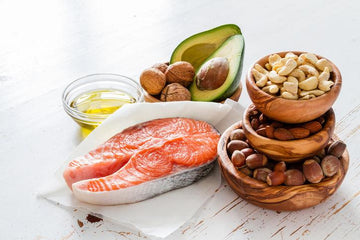

Omega 3 Fatty Acids: Once Per Week Better than Everyday?
Table of Contents
Omega 3 Fatty Acids: Once Per Week Better than Everyday?
The use of Omega 3 fatty acids has been increasing popular in the fitness and resistance training realm. Over the past couple of decades, a several studies have shown that omega-3 fatty acids are helpful in preventing and controlling diseases such as cardiovascular disease, neurological disease, cancer and others. Notably, omega 3 fatty acids have been found to exhibit potent anti-inflammatory effects.
The problem that many Americans have is that most people generally don’t consume fish on a regular basis, but new research suggests that you may be able to consume a single large dose of Omega 3 fatty acids for the week to meet your needs. New research from Deakin University reported that 23% of the large weekly ‘spike’ dose was deposited compared to only 15% of the daily doses in lab rats. Previous studies have also found that a large dose of Omega 3 fatty acids may be just as effective as smaller doses:
- One study compared the bioavailability of EPA and DHA from twice weekly consumption of oily fish (3.40 g/week EPA + DHA) with daily fish-oil capsule supplementation (3.37 g/week EPA + DHA) in a 16 week study in 23 women; they found that there were no treatment differences in the EPA and DHA content of red blood cell membranes or plasma phospholipids despite the difference in twice weekly versus daily consumption.
- Another study compared the bioavailability of EPA and DHA from fish oil capsules (twice per week) with daily fish oil consumption. Male and female participants were given capsules (containing 6.54 g of EPA and DHA per week) either twice weekly or daily for one year. They found that there was no difference between treatments in the plasma phosphatidylcholine level of EPA and DHA.

Researchers just conducted another study, which also supports there may be a beneficial impact of Omega 3 fatty acid taken once per week. The present study sought to examine the whole body bioavailability and efficiency (as long chain omega-3 polyunsaturated fatty acids metabolic fate) of the same overall dose of long chain omega-3 polyunsaturated fatty acids, provided from the same source (fish oil), at the same overall weekly dose, but at different frequencies: daily vs. weekly. The researchers used rats and randomly assigned them to:
- receive a ‘constant’ daily supplements (0.7% of fish oil in their diet),
- a single weekly dose (4.9% of the same fish oil once per week),
- or no fish oil (control) for six weeks.

At the end of the study, much to the researchers surprise, the daily supplementation regime was associated with significantly greater catabolism (84% of the dose), compared with the weekly doses (75% of the dose). Meaning that the omega 3 fatty acids were being broken down and used for energy not deposited into the cells and tissues. The DPA concentration in liver and muscle was significantly greater in the Spike treatment than in the Constant treatment, despite the dietary DPA intake being significantly greater for the Constant treatment. These findings suggest that a large dose of n-3 LC-PUFA once per week is more effective in increasing whole body n-3 LC-PUFA content compared to a smaller dose delivered daily. These unexpected findings show that a large dose of long chain omega-3 polyunsaturated fatty acids once per week is more effective in increasing whole body long chain omega-3 polyunsaturated fatty acids content in rats compared with a smaller dose delivered daily. This is a very exciting study indeed but more studies need to be conducted to further recommendations.
Ghasemifard S, Sinclair AJ, Kaur G, Lewandowski P, Turchini GM. What Is the Most Effective Way of Increasing the Bioavailability of Dietary Long Chain Omega-3 Fatty Acids-Daily vs. Weekly Administration of Fish Oil? Nutrients. 2015 Jul 10;7(7):5628-45.
William, S.H.; James, V.P.; Scott, A.S.; Philip, G.J. Comparison of the effects of fish and fish-oil capsules on the n-3 fatty acid content of blood cells and plasma phospholipids. Am. J. Clin. Nutr. 2007, 86, 1621–1625.
Browning, L.M.; Walker, C.G.; Mander, A.P.; West, A.L.; Gambell, J.; Madden, J.; Calder, P.C.; Jebb, S.A. Compared with daily, weekly n-3 PUFA intake affects the incorporation of eicosapentaenoic acid and docosahexaenoic acid into platelets and mononuclear cells in humans. J. Nutr. 2014,144, 667–672.

















